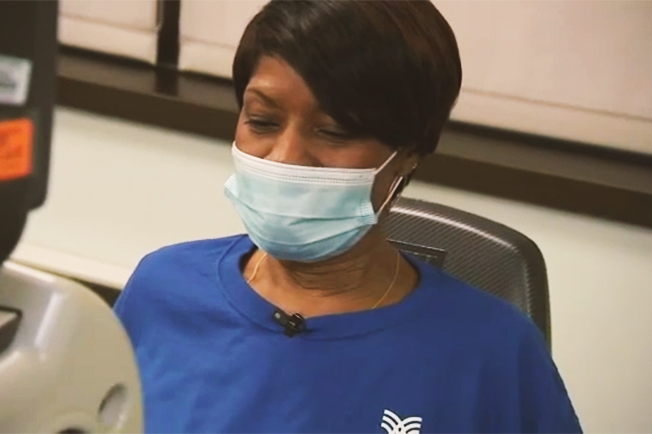Art of Aging: Outpatient cardiac rehab can strengthen your heart

When June Harris, 67, visited the emergency room at Lankenau Medical Center, part of Main line Health, saying she was out of energy, she got a big surprise. It turns out she had blocked coronary arteries and needed heart bypass surgery.
Months later, Harris was still experiencing lack of energy, so she returned to Lankenau Medical Center to participate in the outpatient Cardiac Rehabilitation Program.
Watch 6abc Art of Aging segment with Tamala Edwards
What is cardiac rehabilitation?
Cardiac rehab is a medically supervised program that includes exercise training, education on heart-healthy living and lifestyle. Oftentimes it also involves counseling to help reduce stress. This program can play a critical role in improving your quality and length of life.
Outpatient cardiac rehab is a supervised program that may include:
- Low-intensity aerobic exercise and strength training
- Blood pressure and heart rhythm monitoring during exercise
- Nutrition, stress management, hypertension, diabetes and exercise education
Trained cardiac rehab specialists work with patients like Harris to strengthen the heart muscle and increase endurance and stamina.
Who can benefit from cardiac rehab?
Multiple studies have found a relationship between strength training and heart disease. While the primary benefits of strength training has been seen as musculoskeletal, newer research shows that weight training also reduces your risk of diabetes, stroke and heart disease.
The supervision of a cardiac rehabilitation program—with low-intensity aerobic exercise and strength training built-in—can be extremely beneficial, and is recommended for patients who have experienced:
- Heart attack
- Heart failure
- Weakened heart muscle
Or have had an intervention or surgery, such as:
- Coronary artery bypass surgery
- Heart valve repair or replacement
- Angioplasty or stents
Each patient follows a six- to 10-week program, working one-on-one with a cardiac rehab specialist during each one-hour session. Each session is individually tailored to the patient’s needs and the cardiac rehab nurses also provide education support with lifestyle changes.
As for Harris, she’s on a healthy track at the completion of her program. She’s down 35 pounds and takes 30-minute walks every day. Not to mention she’s eating more fruits and vegetables, and eating smaller portions.
Next steps:
Learn more about Main Line Health’s Cardiac Rehabilitation Program
Learn about the importance of resistance and strength training
 Content you want, delivered to your inbox
Content you want, delivered to your inbox
Want to get the latest health and wellness articles delivered right to your inbox?
Subscribe to the Well Ahead Newsletter.
